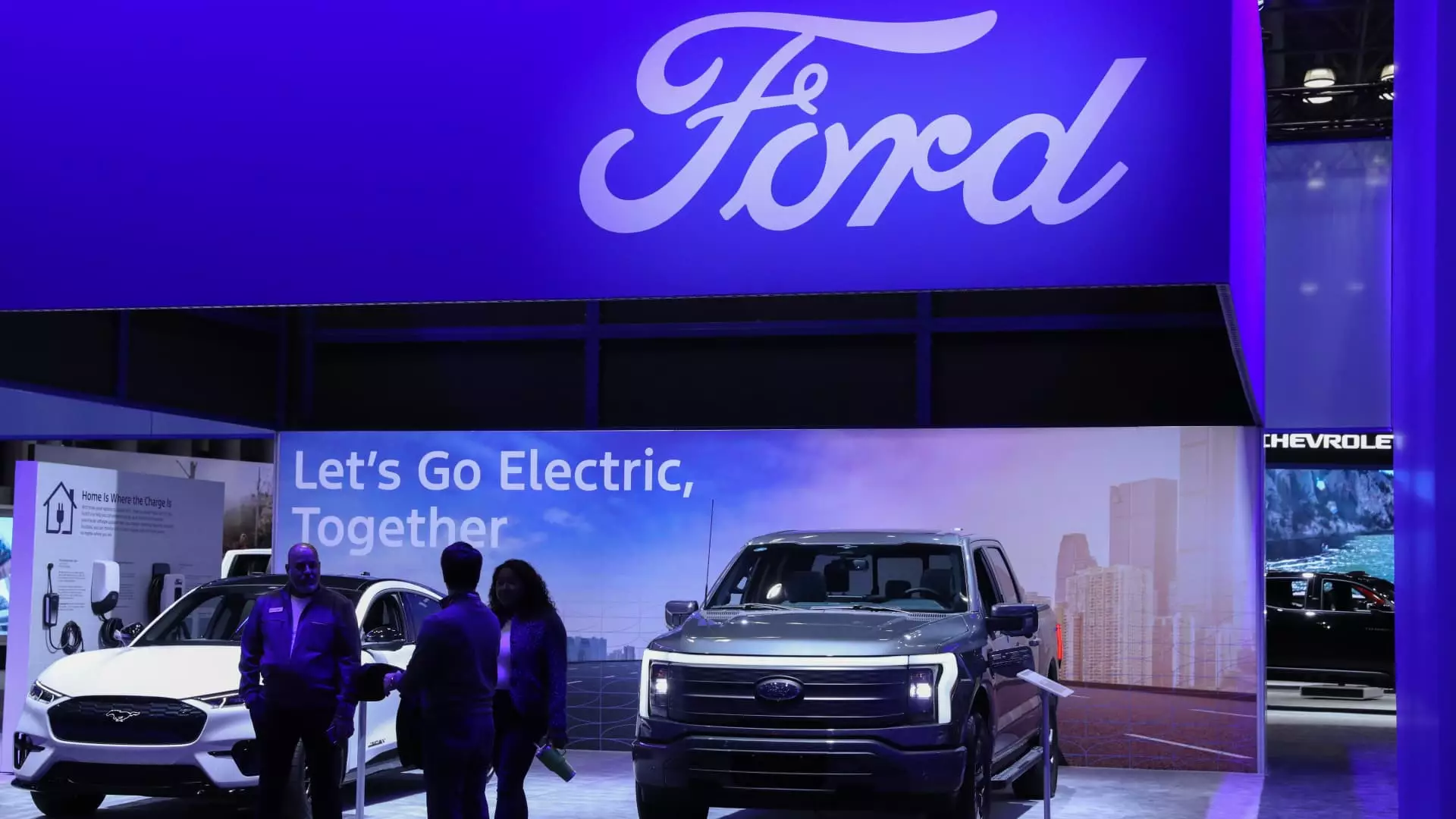Ford Motor recently announced that they are delaying the production of a next-generation all-electric pickup truck at a new plant in Tennessee and canceling plans for a three-row electric SUV. Instead, the company will prioritize the development of hybrid models and electric commercial vehicles. Ford will be focusing on producing a new electric commercial van in 2026, followed by two EV pickup trucks in 2027. The decision reflects Ford’s strategy to capitalize on their competitive advantage in commercial land trucks and SUVs, as stated by Ford CFO John Lawler.
While the new focus on hybrid models and electric commercial vehicles is aimed at delivering a capital-efficient, profitable electric vehicle business, it will come at a cost for the company in the short term. Ford will incur a special noncash charge of about $400 million for the write-down of certain product-specific manufacturing assets due to the cancellation of the three-row SUV. Additionally, the changes may result in additional expenses and cash expenditures of up to $1.5 billion, which will be reflected in the company’s financial statements as a special item.
The full-size EV pickup truck is expected to be produced in 2027 at the Tennessee plant that is currently under construction. Ford is also working on developing a new midsize truck in California with a specialized “skunkworks” team. The company initially planned to begin vehicle production at the new $5.6 billion Tennessee site next year but has now shifted its timeline. While the company still expects to start battery cell production at the site in 2025, the focus has now shifted towards producing hybrid models and electric commercial vehicles.
According to John Lawler, the decision to delay the production of the all-electric pickups and SUV was based on feedback from customers. Ford has been in the EV market for over two years and has learned that customers are in demand for more electrification choices. As a response to customer preferences, Ford will be rolling out a new generation of EVs starting with a commercial van assembled at Ford’s Ohio Assembly Plant in 2026.
Ford plans to continue producing and updating their current all-electric vehicles such as the Ford Mustang Mach-E crossover and F-150 Lightning pickup truck. The company has shifted its capital expenditure plans from focusing 40% on all-electric vehicles to spending 30%, although Lawler did not provide a timeline for the change. Ford aims to provide investors with an update on electrification, technology, profitability, and capital requirements in the first half of 2025.
Ford’s decision to delay the production of an all-electric pickup and SUV reflects a strategic shift towards focusing on hybrid models and electric commercial vehicles. While the move is expected to drive a capital-efficient, profitable electric vehicle business in the long run, it will incur costs for the company in the short term. By prioritizing customer feedback and adapting to market demands, Ford aims to position itself as a leader in the evolving landscape of electric vehicles.

